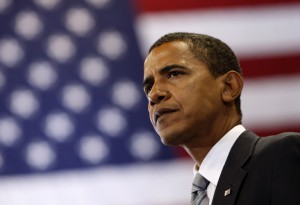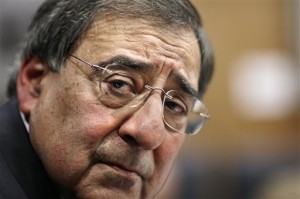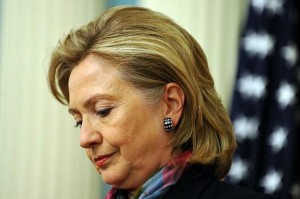Will the US leaders bow their heads in front of Khmer ex-King’s corpse?
Column
Chhay Sophal
If the schedule is not changed, President Barack Obama, Secretary of State Hillary Clinton, and Secretary of Defense Leon Panetta of the giant nation with world military power will visit Cambodia this week.

The visit is a big pride for small Cambodia as the leaders of the powerful country on the earth are coming in. On the other hand, President Obama’s arrival in Cambodia is his chance to meet with other top leaders of Asia and Europe to strengthen diplomatic relation and economic and trade cooperation after he has won the elections as the US President for the second mandate.
For Cambodia in particular, the US President’s visit is at least the first time since Samdech Norodom Sihanouk was ousted from the Head of State on 18 March, 1970 through a coup.
For the past 30 years, the US provided both military means and finance to Prime Minister Lon Nol and Samdech Sihanouk’s cousin Prince Sisowath Sirik Matak to oust Samdech Sihanouk from the Head of State.
Losing the position — due to his juniors and a small number of the royal family members with the US administration’s support and aids — drove Cambodia into war and genocide. Particularly, due to the coup, it made Samdech Norodom Sihanouk and his wife Monineadh as well as most of royal family members were expelled from the Royal Palace for more than 15 years (First was in Jan 1970 – July 1975 and second was in Jan 1979 – Nov 1991)
In the book “Hun Sen – Power and Politics in the Khmer History for over 40 Years”, the author quoted Samdech Sihanouk’s writing on his sadness and the mistreating from the US’s CIA that tried to assassinate and oust him.
Getting aware in advance, Samdech Sihanouk on 7 January, 1970 left Cambodia with his wife along with a small suit. For the departure, Samdech Sihanouk wrote that “I need complete rest, and treatment for my certain chronic ailments, and I thought it would be a salutary lesson for Sirik Matak and his supporters” to have free hand and let them see how well they could solve the country’s economic ills by scrapping his policies.

Then, despite knowing that the US was not his ally, he still asked the US government for political asylum after Pol Pot was toppled on 7 January, 1979 when Vietnamese troops marched to occupy Cambodia. In the book “Mom & Angkar’s Kids”, the writer quoted Samdech Sihanouk as saying that the US and France did not offer him the asylum but only China granted him.
Although Samdech Sihanouk often blamed the US for its fault by supporting the coup to oust him from power, the Cambodian and the world never heard that he asked the US to beg apology from him and his people. After the coup, glorious Cambodia fell into decades of civil war, genocide, and the country so far has been full of millions of landmines and holes of the US B52 bombardments. All of these caused millions of people murdered and millions of survivors become widows, orphans and disabled persons.
For Japan, after defeat in the World War II, the country’s leaders have been under continuous pressure to say apology for its soldiers’ immorality in the past. In general, when Japanese top leaders visit countries such as China and Korea where Japan used to invade and made colony during the World War II, some activists always urged Japan to say “sorry” to their peoples for Japanese soldiers who raped their women during the colony.
But for Cambodia, there has no any activist who urges Japanese leaders to beg apology from Cambodia though Japanese troops invaded Cambodia and had similar act like in China and Korea. For this point, the Cambodian probably do not want to remind what happened in the past that can affect friendship at the present.
For former Khmer monarch Samdech Norodom Sihanouk, he probably had similar feeling like his people i.e. he did not want the US to ask for forgiveness from him and his beloved nation. On the other way, even though the US administration under leadership of President Richard Nixon who was his enemy, the next, next US administrations also tried their best to help push the Paris Peace Accord on 23 October, 1990 that paved the way for him to return the country on 14 November, 1991 and re-reigned in 1993, as well as the monarchy has been alive since then.
This week, the President, Secretary of State, and Defense Minister of the powerful nation that supported to oust Samdech Sihanouk from the Head of State in the past are coming to Cambodia. According to Information Minister Khieu Kanharith, up to 13 November there is only one Prime Minister of a country has asked to pay respect to the Cambodian King Father’s corpse in the Royal Palace but there has not been any schedule yet for the US leaders.

If the US President and his colleagues do not enter the Royal Palace to bow their heads in front of Samdech Sihanouk’s corpse, there will be another story to be considered. But, although Obama and other US top leaders come to pay respect to Samdech Sihanouk’s royal corpse in the names of individuals or in the names of the young leaders who pay respect to the old generation, some political analysts similarly said that the leaders of Sihanouk’s former political enemy eventually come to bow their heads in front of his corpse. The bowing is a political reimbursement to Samdech Sihanouk and his royal family members.
The analysts similarly also raised that the royal corpse of Cambodian King Father Norodom Sihanouk is really much luckier and much more honorable than the corpse of Vietnamese Leader Ho Chiminh. On 3 September, 1969, Samdech Sihanouk went to Hanoi to join the funeral of Ho Chiminh who passed away at the same day; and Samdech Sihanouk was the only a country’s Head of State who joined the funeral. Differencing from that time, the world top leaders are expected to pay respect in front of the Samdech Sihanouk’s corpse.
Will the US leaders bow their heads in front of Khmer ex-King’s corpse?
